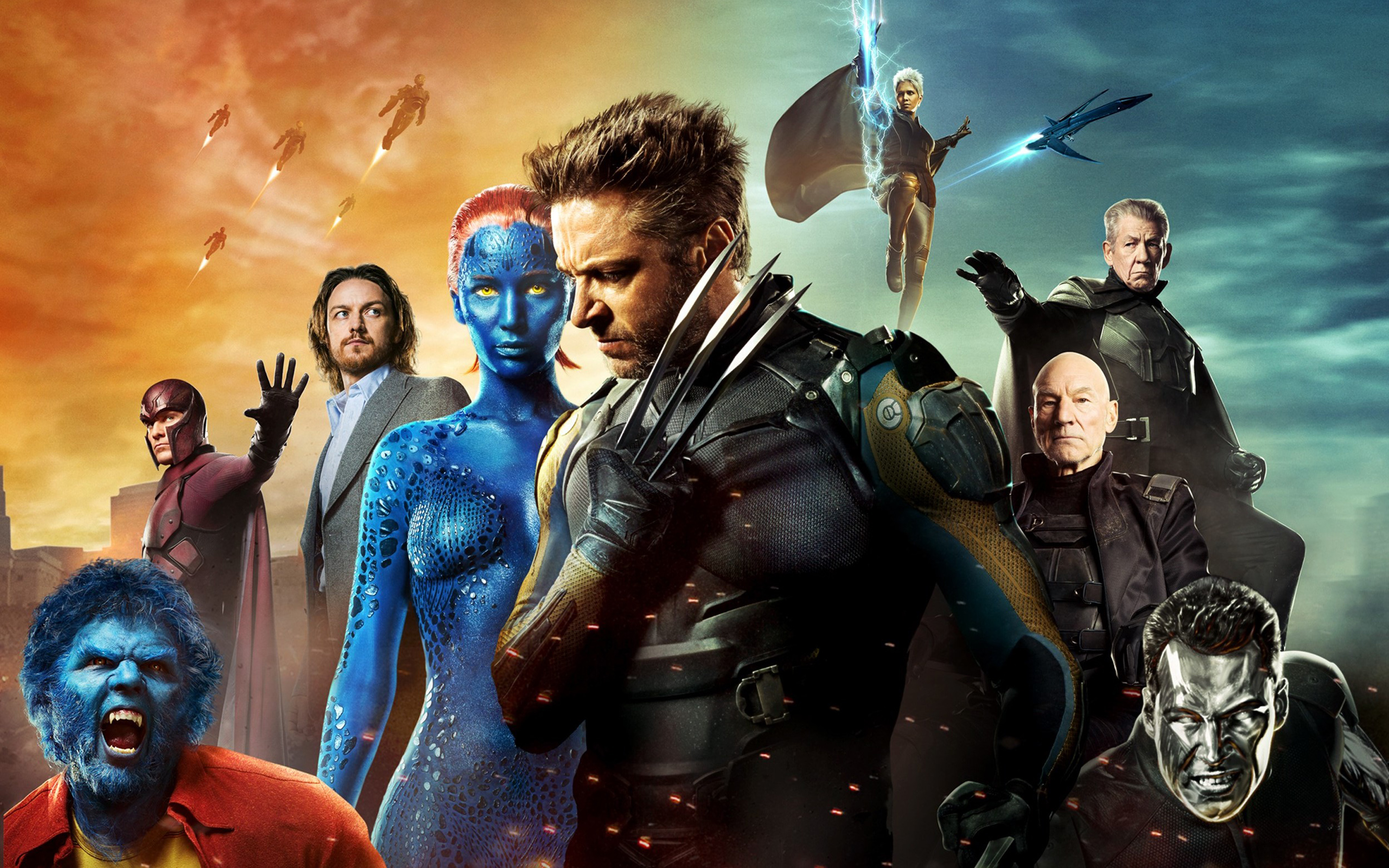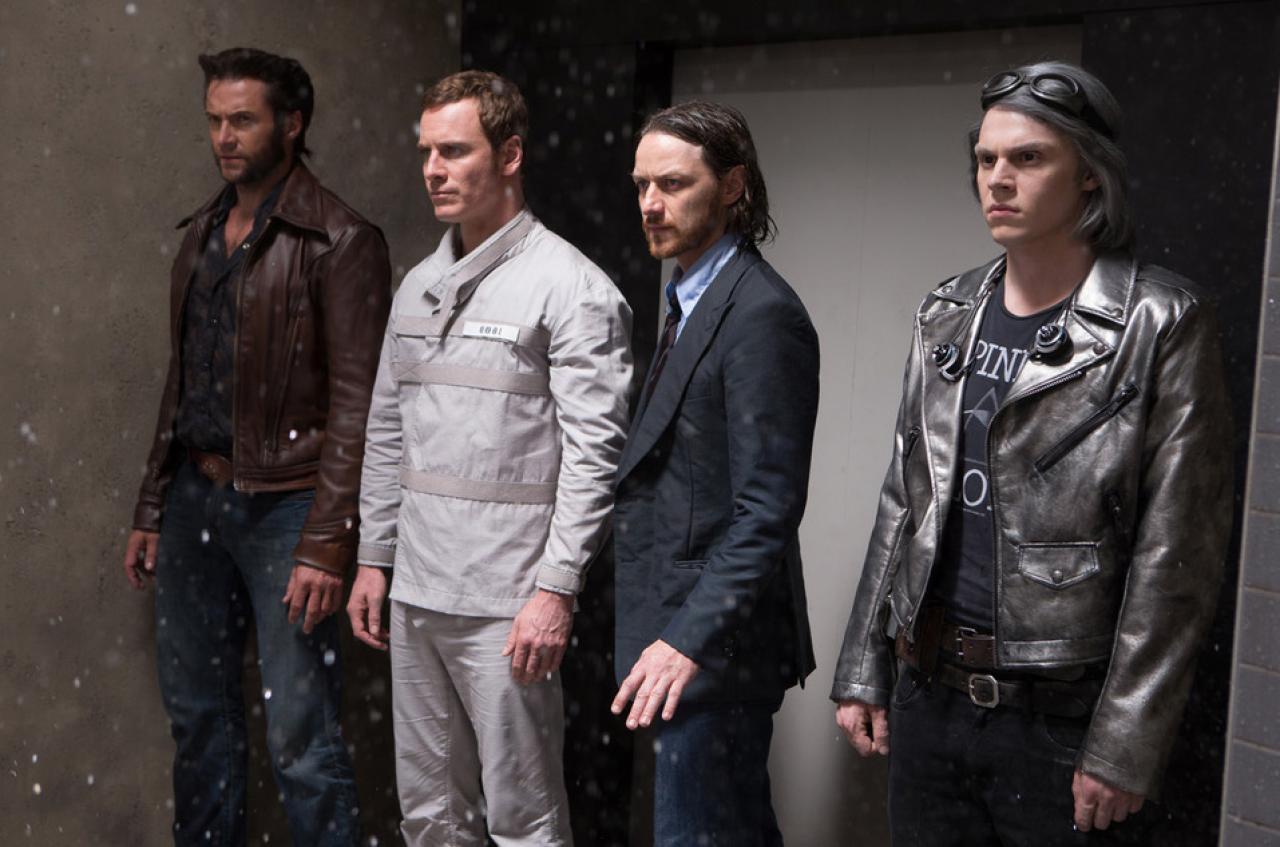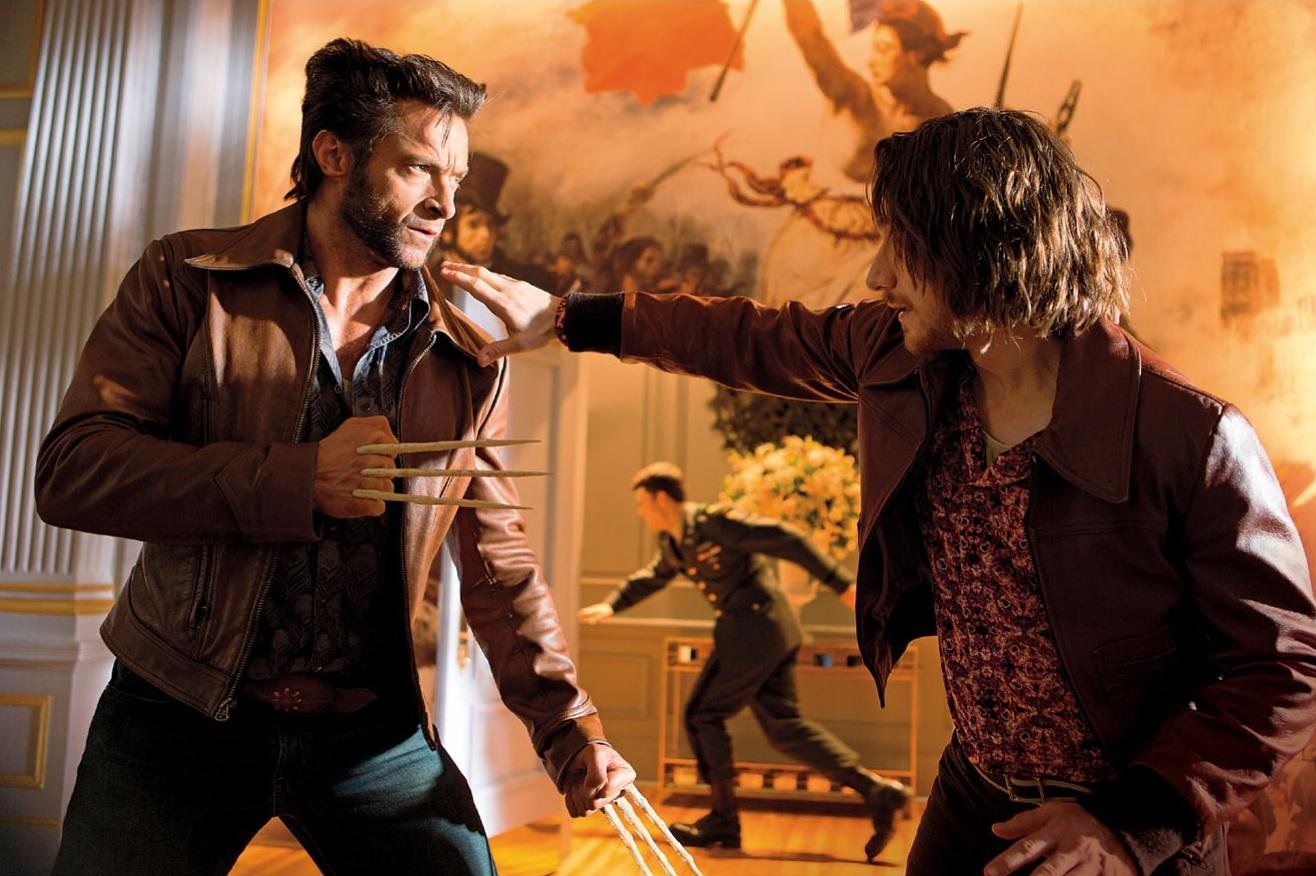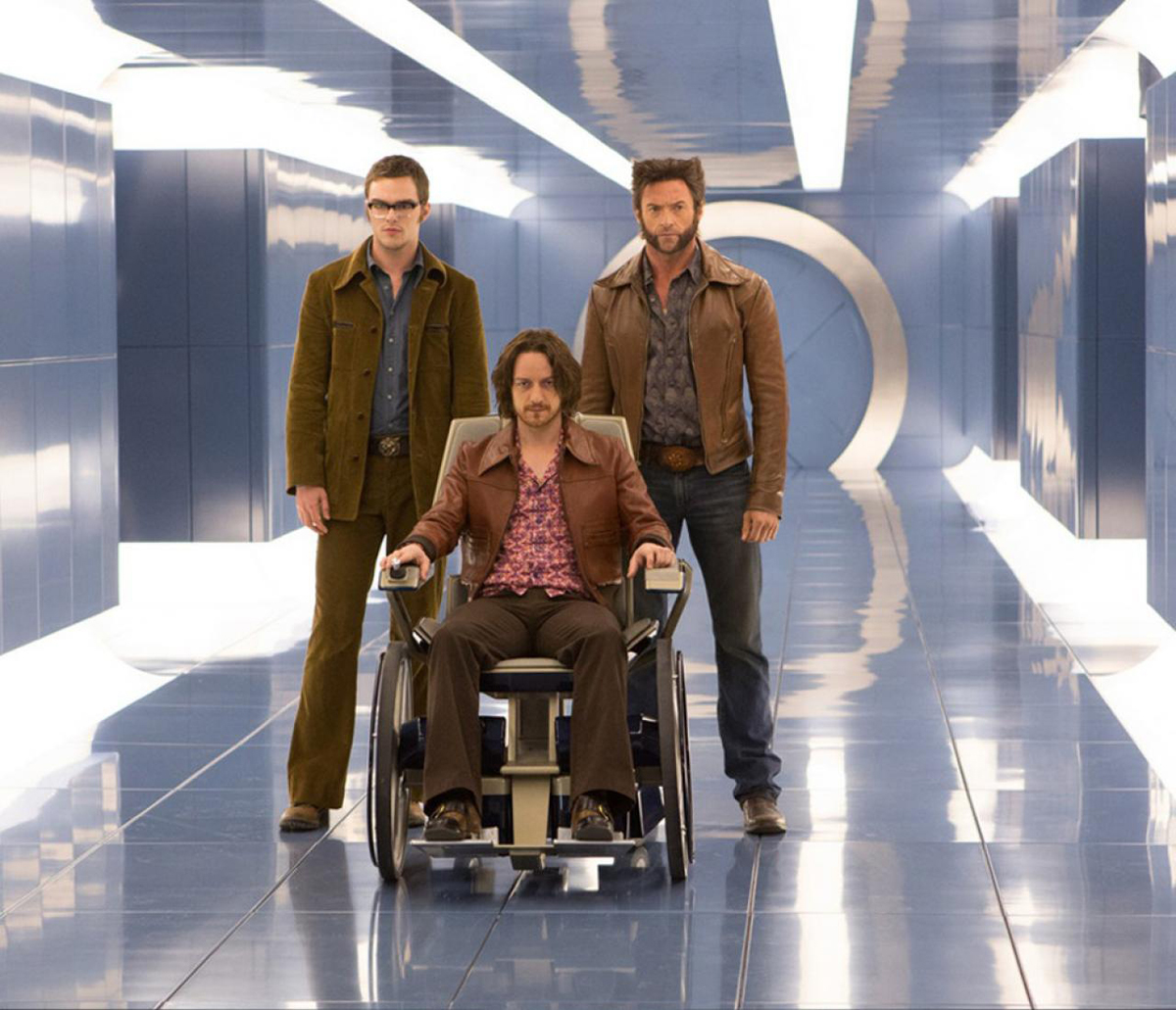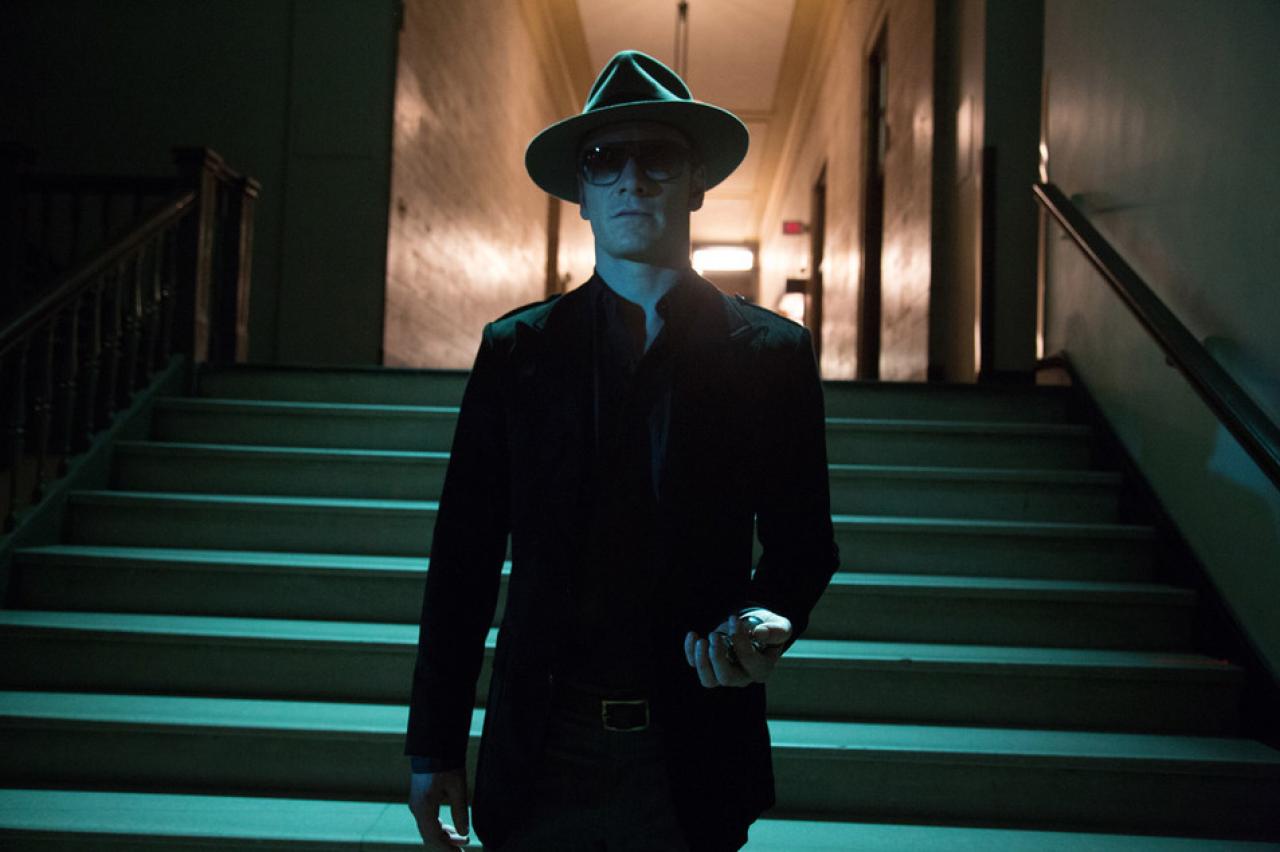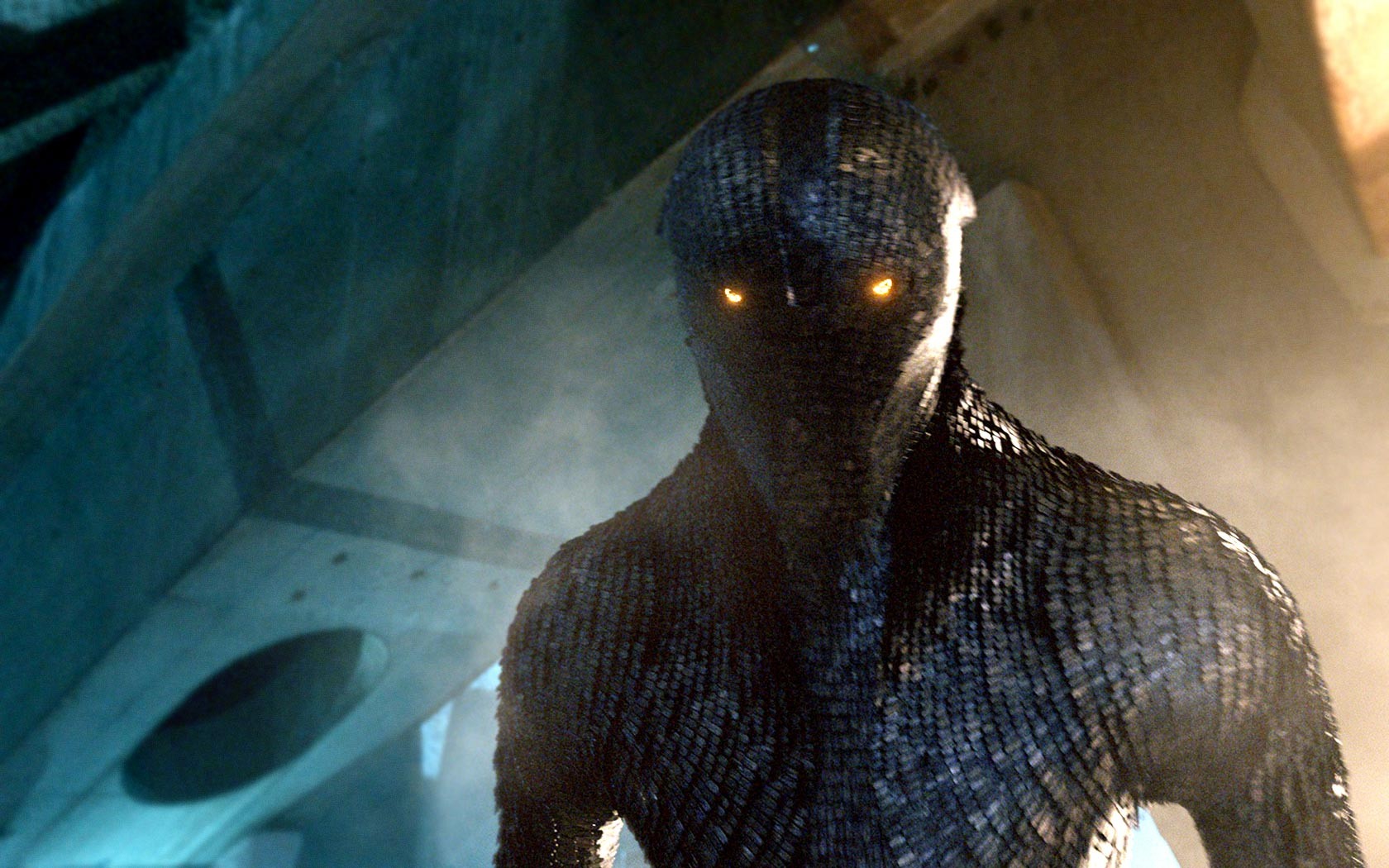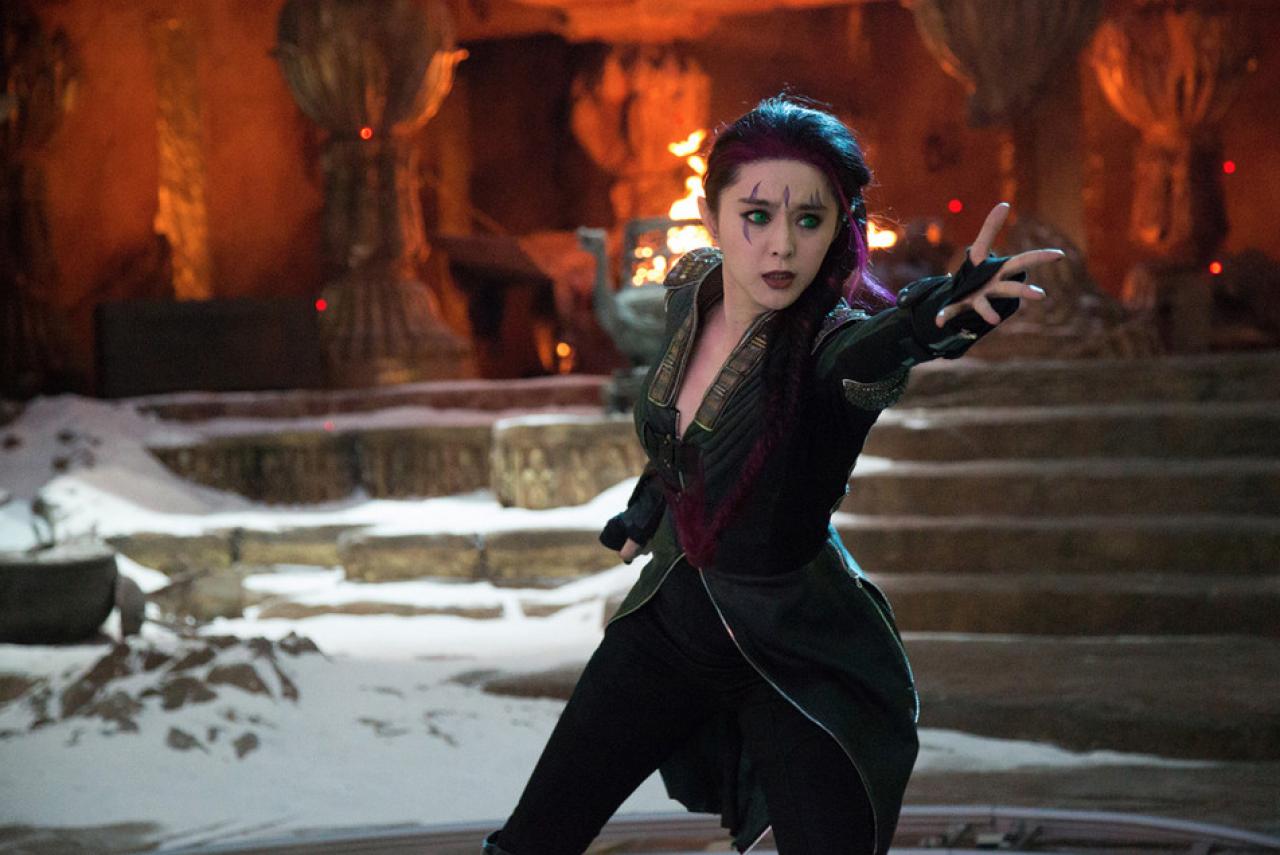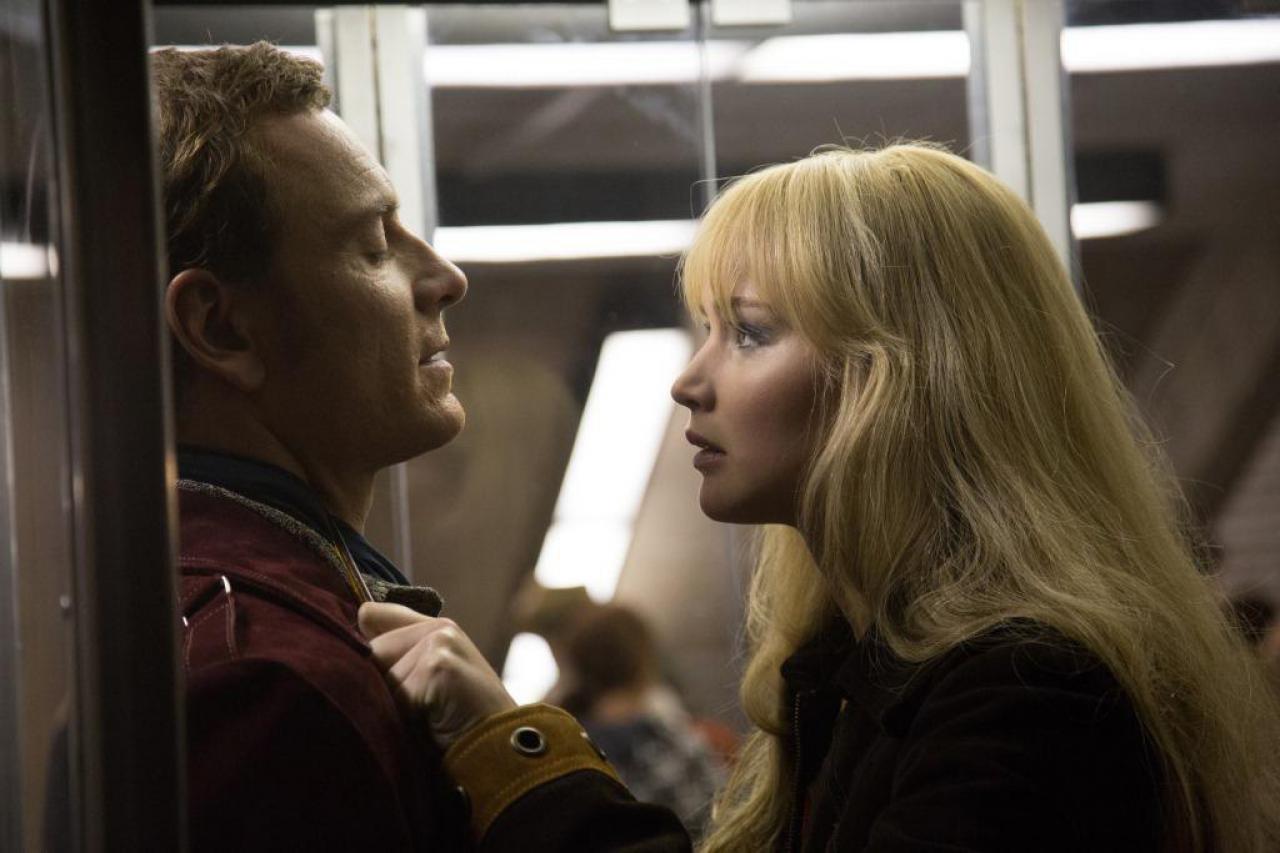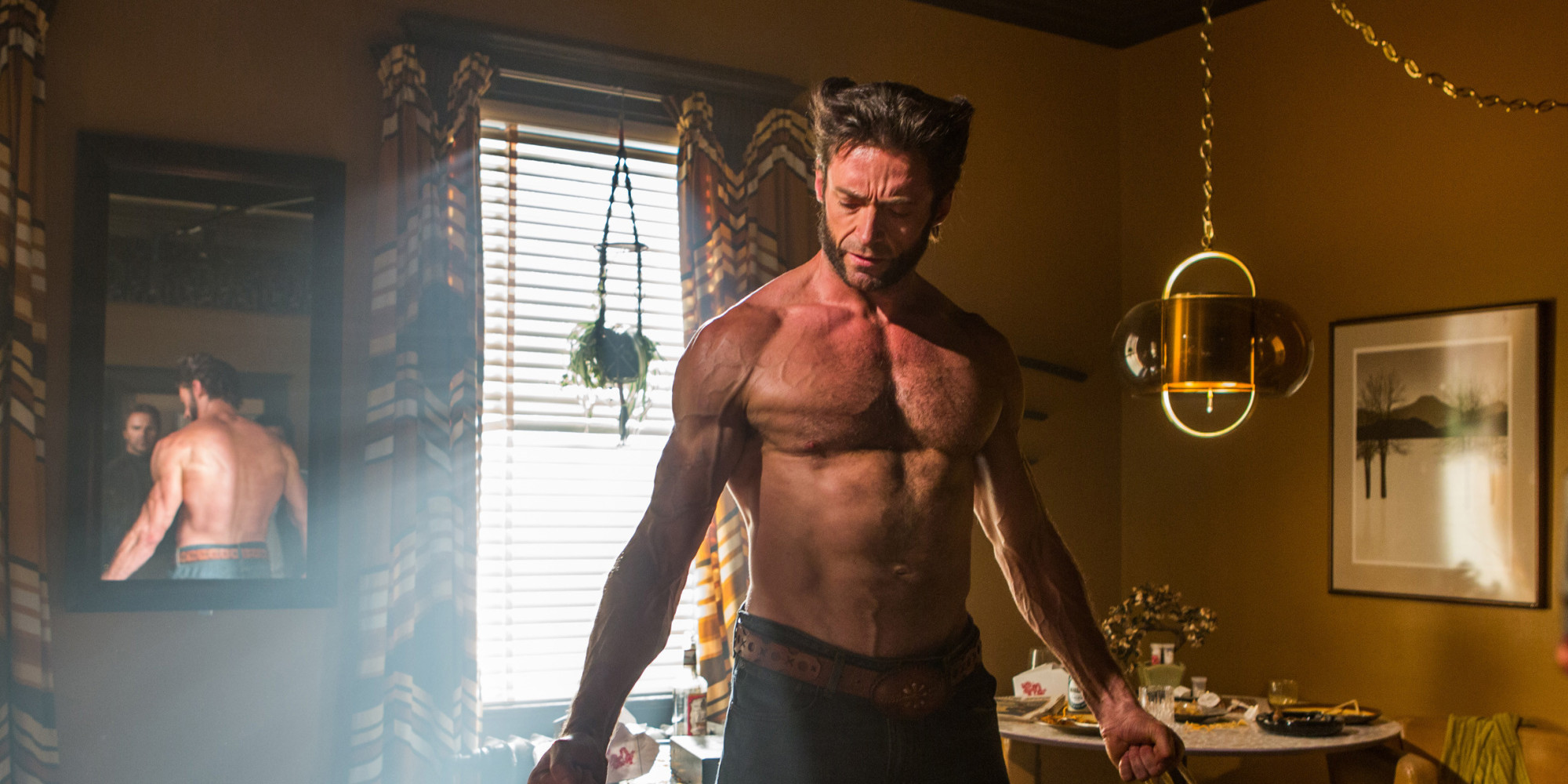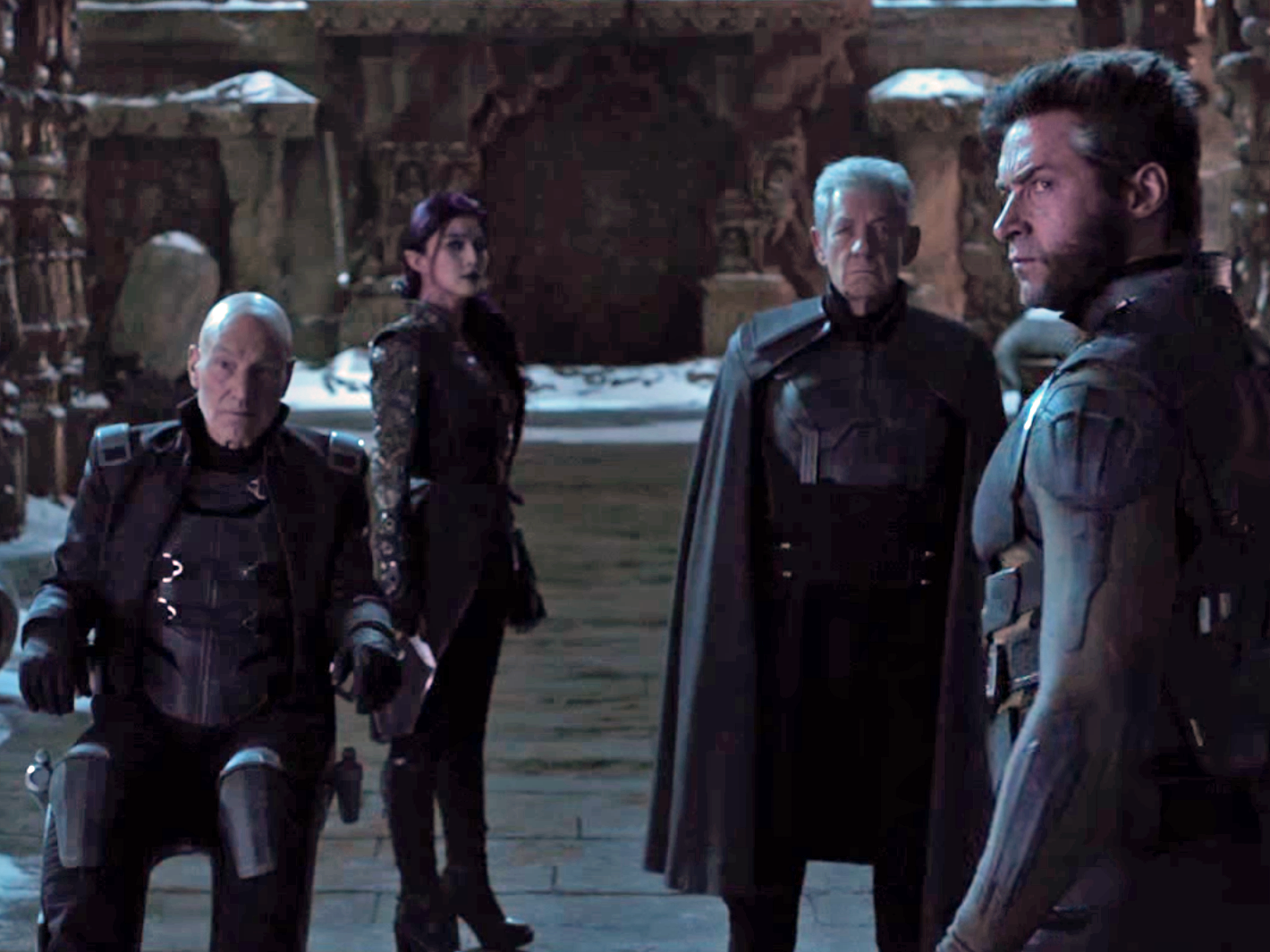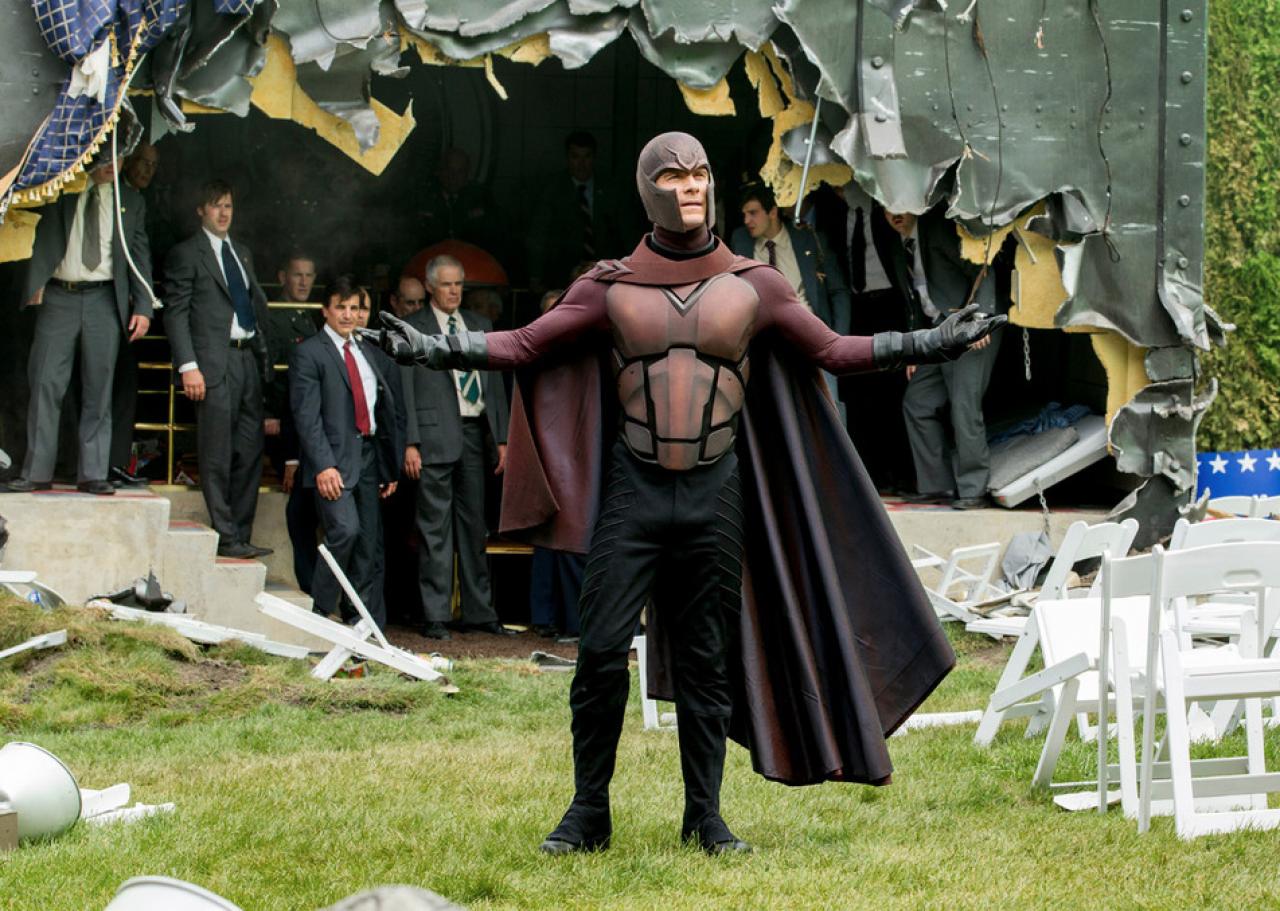The X-Men movies have made a surprising turnaround in the wake of the disappointing X-Men: The Last Stand and the downright wretched X-Men Origins: Wolverine. 2011’s X-Men: First Class was a clever and fun prequel that established a new, younger band of likeable mutants, and 2013’s The Wolverine proved that good Wolverine-centric spin-offs are indeed possible for the series.
It’s with X-Men: Days of Future Past however that the series officially returns to the outstanding pedigree it held with the superb original X-Men movie, and its equally superb sequel, X2: X-Men United. X-Men: Days of Future Past is both the largest and most ambitious X-Men movie to date, and in almost all respects, it also happens to be the best one yet!
Loosely adapted from the famous 1981 Uncanny X-Men comic book arc of the same name, X-Men: Days of Future Past unites much of the veteran cast of the former X-Men movies with much of the new cast of X-Men: First Class. Primarily taking place in 1973 as Wolverine must travel back in time to avert a future where mutants are hunted to extinction, the movie maintains the same slick vintage spy movie feel of X-Men: First Class, yet has the same modern polish and impressive wit of X-Men and X2: X-Men United. Not only are the best X-Men movie characters being brought together into one story, but the best X-Men movie sensibilities have also come together to make a truly huge and spectacular movie that will no doubt stand as May 2014’s best blockbuster!
The movie’s still firmly rooted in familiar X-Men sensibilities, and still falls shy of this past April’s outstanding Captain America: The Winter Soldier, but the X-Men movies have never been better. If you’ve ever enjoyed any of them, or good sci-fi/superhero flicks in general, you’ll definitely find lots to love in Fox and Marvel’s latest mutant-powered extravaganza.
As you can imagine in a movie that unites two generations of casts, X-Men: Days of Future Past is packed with more personalities than ever to keep track of. To its credit however, every personality in the movie is given something to do, and all of them leave some sort of impression on the viewer.
The only one that borders on being less interesting is, somewhat disappointingly, the movie’s non-powered villain, Bolivar Trask, played by Game of Thrones’ Peter Dinklage. Dinklage himself does a great job in the part, and all of the pieces are there to make him a powerful, dangerous government manipulator, as he tries to strong-arm the American military to bankroll his efforts to develop Sentinels, the famous giant purple machines that are programmed to hunt and kill mutants. Unfortunately though, he’s not really a villain as much as he is a plot device in the end.
The key problem is that Trask ultimately doesn’t feel like an actual threat to the mutants in the movie. Yes, we see the implications of what happens if Mystique assassinates Trask and inadvertently creates a future where the government builds the Sentinels, wipes out humankind, and pretty much destroys everything, but that’s still not an issue created by Trask himself. Trask too often feels like an impotent salesman, and even when his Sentinels do square off against the heroes, it’s not his doing. Despite Dinklage’s best and noble efforts to create a complex villain, Trask just never really has much of a real presence unfortunately.
If anything, Jennifer Lawrence’s younger and especially ferocious Mystique feels like the movie’s true villain most of the time. Her single-minded, obsessive quest to kill Trask, even when she’s warned about the consequences, makes her feel much more threatening and dangerous, especially since her mutant powers allow her to theoretically be hiding anywhere. Lawrence continues to be a real highlight in the part too, having completely shed her warmer, more introspective light from X-Men: First Class, now fully embracing being both a femme fatale and a savage warrior.
Even in the past events of 1973, both Charles Xavier’s X-Men and Magneto’s Mutant Brotherhood lie in shambles. The Vietnam War has led to much of Professor Xavier’s students and teachers being drafted, and the loss of his adopted sister to Magneto has ultimately left Charles in a state of self-pity and depression. Magneto has also ultimately lost most of his Mutant Brotherhood to the off-screen experiments of Trask, with Magneto himself being imprisoned under The Pentagon for his assumed role in the JFK assassination. This serves as a convenient excuse to shuffle the younger cast, with much of the key X-Men: First Class characters inexplicably disappearing, or being killed off-screen.
Fortunately, Nicholas Hoult’s younger incarnation of Hank McCoy/Beast has stuck around. The younger Beast is the only ally that Charles has left at the start of the movie, inventing a serum that suppresses both his blue skin and bestial features, and allows Charles to walk at the cost of his mutant powers not working while it’s active. Hoult’s chemistry with Hugh Jackman makes him an ideal choice to represent all that’s left of the prequel cast, especially when he’s inevitably set up to become good friends with Wolverine down the line. Even better is that Hoult is allowed to let loose with the action scenes in a way that he never could in the previous prequel, where his full powers weren’t realized until the climax, and even then, weren’t really used at all.
Jackman himself is naturally as fantastic as ever as Wolverine. Still gruff, edgy and badass, Wolverine effectively feels familiar, but is also given an effective added dimension in coming from a future where everything is lost for his kind and those he cares about. While he’s slightly more mellow in this latest movie, even having to guard his rage to keep himself stabilized in the past, he still gets plenty of chances to get into fights and cause trouble, the way that only Wolverine can.
As with X-Men: First Class however, one of the big highlights amongst the characters in X-Men: Days of Future Past is the excellent continued development given to the increasingly tense relationship between the younger Professor Xavier and Magneto. Forced to work together after being torn apart by Magneto’s actions, the fine balance of regret, anger and vague hope between the two men is captured wonderfully once again. James McAvoy and Michael Fassbender continue to deliver outstanding turns in their roles as well, with McAvoy particularly standing out thanks to his now-defeated and resigned Xavier. A very clever role reversal of Wolverine now having to inspire and lead the man who inspired and led him in the original X-Men movie further makes the younger Xavier’s character arc especially interesting and memorable.
Most of the movie continues to focus on this younger cast, plus Wolverine, though cutbacks are continually made to the destitute future where the veteran cast currently struggles to survive. Ellen Page’s Kitty Pryde/Shadowcat, normally able to walk through solid surfaces, now seems to have the ability to send Wolverine back in time (despite the fact that it was Kitty herself who went back in time in the Days of Future Past comic arc), though despite largely standing still for the whole movie, she still nicely illustrates the growing peril of the X-Men’s, ahem, last stand. Patrick Stewart’s older Xavier and Ian McKellen’s older Magneto also stand over her as regretful, weary veterans of the mutant war, nicely lamenting about the years they wasted fighting each other, rather than the real threat behind the scenes.
Halle Berry, Daniel Cudmore and Shawn Ashmore reprise their roles as Storm, Colossus and Iceman respectively, who mainly just contribute some very cool action scenes in trying to fight off the futuristic, shape-shifting Sentinel Mk. II’s, and they’re joined by a handful of new faces: Omar Sy’s Bishop, Fan Bingbing’s Blink, Adan Canto’s Sunspot, and Booboo Stewart’s Warpath. These characters all just contribute more special effects and action to the otherwise straightforward dialogue scenes of the future, but their presence is still appreciated, and their action moments are still exciting and nicely intense, continuing to sell the desperation and stakes of Wolverine’s time-traveling mission.
Among the new faces, a surprise highlight is Evan Peters’ Quicksilver, once the target of online scorn, but actually one of the best and most memorable new characters in the entire movie. Peters has far too brief screentime in the role of the wisecracking, street-savvy and delightfully goofy speedster, sadly only having one major scene, as he’s enlisted to break Magneto out of prison before pretty much exiting the movie. His presence contributes to this sequence being a standout however, and the prison break sequence in general is a superb mix of tension, suspense and great, cheeky fun. His comic book lineage to Magneto is even playfully hinted at in a very well-placed throwaway line, one that will very much amuse avid X-Men fans.
Despite the bleak tone throughout much of X-Men: Days of Future Past, it’s quite pleasantly surprising that the script manages some great moments of humour and fun like those with Quicksilver, even amidst what’s mostly a dark story. It comes down to the characters just being extraordinarily well-written though. Sure, some are inevitably going to be bumped out or shoved into the background, but the personalities at play all feel real and emotional as much as they are fun and uplifting, despite the dismal circumstances of the future.
This is a fantastic example of maximizing a huge ensemble cast in a big, busy superhero blockbuster, without making their arcs feel crowded or clumsy.
X-Men: Days of Future Past keeps its otherwise complex storytelling surprisingly simple and easy to follow. There are a few moments of comic book-esque convolution that might be lost on those not well-versed in comic book logic, but for the most part, the movie keeps everything clear and accessible even to non-fans, despite its intersecting timelines.
The desolate future is very effectively established in the opening minutes, effectively selling the stakes of the story right from the get-go. This is made all the better by a sharp opening action sequence that leads directly into the method with which the global destruction can be stopped before it even begins, giving a hurried, but concise pace that makes audiences comfortable, but doesn’t take long to immediately engage them.
Once the story gets to its key setting of 1973, the retro-chic vibe of X-Men: First Class’s style of storytelling returns, including more nicely intercut ways to cleverly link the story to key events in American history. Without the necessary evil of re-establishment for its younger cast, X-Men: Days of Future Past is immediately allowed to carry the dark tone of its future timeline into a particularly difficult time for the originating X-Men. This leads to a story that feels noticeably more pressing and engrossing than the origin arc of X-Men: First Class, and audiences will be immediately sucked into the new setting and premise.
Seeing as this is yet another packed and story-heavy blockbuster, it’s difficult to go over much of the story without some crucial spoilers, as twists and turns are constantly thrown at you, but not to the point where the plot ever loses you. Believe it when I say that the story is remarkably well-told and consistently exciting and dramatic, taking some liberties from its original comic inspiration, but always for the better. It builds upon the intriguing elements of not just X-Men: First Class, but all of the X-Men movies to come beforehand, and takes them all somewhere new and exciting unlike anywhere they’ve gone before, while still undeniably feeling like an X-Men movie.
The interplay between the past and the future is something that could have easily been mishandled, but it only makes proceedings better. The movie very effectively picks its moments to cut back to the future, checking in on the veteran cast as they discuss their imminent doom, and the potential of Wolverine’s success in the past, on top of regrets they have about their former lives. This helps better illustrate the final result of the former X-Men movies, almost acknowledging in a sort of meta sense that mistakes were made with the franchise, but there’s still hope for it as much as there is the cast of mutants themselves.
Fortunately, like I said, this is the best X-Men movie story yet in many respects, and fans especially will enjoy every minute of it!
Included among the cameos is Famke Janssen and James Marsden, reprising their roles as Jean Grey and Cyclops respectively, whose deaths in X-Men: The Last Stand are undone in the new future. This movie completely removes X-Men: The Last Stand from canon in fact, as Professor Xavier was never killed, the mutant cure never seems to have been developed, evidenced by Anna Paquin’s Rogue still appearing briefly as a student at Professor Xavier’s school, powers intact, and obviously, Bolivar Trask is no longer a large African-American guy like he was in that movie.
With the removal of X-Men: The Last Stand from canon also unfortunately comes the removal of The Wolverine from canon, since that movie was all about Wolverine trying to cope with killing Jean Grey, and led directly into the Sentinels beginning their mutant extermination. Fortunately, an alteration to Wolverine’s induction into the Weapon X program in this movie’s final scene also removes the much-hated X-Men Origins: Wolverine from canon (and its unforgivable butchering of Deadpool), but the fact that a good movie had to be sacrificed to make a couple of stinkers non-canon is nonetheless disappointing. It also begs the question of how Fox’s planned third Wolverine spin-off may work in 2017, since both of the former Wolverine movies have been taken out of canon.
It’s also firmly established that, as is often incorrectly stated, the events of X-Men: First Class occurred in both timelines, and the movie is a prequel in the same continuity as the former movies, not a reboot! While the younger cast now theoretically exists in an alternate timeline that sets up for more prequel movies, X-Men: First Class is cemented indisputably as part of canon now.
It’s assumed that the events of X-Men and X2: X-Men United are still canon, given that Rogue and Iceman are dating, Wolverine works at the school, Shadowcat has become a teacher, and Pyro is nowhere to be found. The only exception would be X2: X-Men United’s final scene obviously being removed from canon now, as Jean Grey no longer becomes Dark Phoenix.
On one last note, there is a post-credits scene in X-Men: Days of Future Past that unfolds after all of the credits have rolled. It shows a young En Sabah Nur (a.k.a., X-Men nemesis, Apocalypse) using his molecular manipulation powers to assemble a pyramid in ancient Egypt, while worshipped by a plethora of followers. This is obviously a direct lead-in to 2016’s next X-Men flick, X-Men: Apocalypse, giving us our first look at a younger incarnation of the titular villain.
While Matthew Vaughn and James Mangold have made their own great contributions to the X-Men movie franchise, it really is great to have original director, Bryan Singer back to helm X-Men: Days of Future Past. Even having merely produced X-Men: First Class, Singer immediately feels at home with that movie’s retro-chic espionage style, creating a follow-up that fits smoothly with his original X-Men flicks, as well as the revised sensibilities of X-Men: First Class.
Singer also continues to deftly balance a great mix of action and fun, allowing some well-placed humour to keep the heavy storyline from becoming too depressing, but still wonderfully assembling every scene to maximize the emotional impact of characters and dialogue. Likewise, Singer continues to realize some truly brilliant uses of the various mutants’ powers, with action that feels quick, but colourful and easy to follow.
There are some truly brilliant moments that number among some of the best-realized X-Men movie scenes to date here, namely the heist sequence with Quicksilver, and the climax that involves an indignant Magneto dropping a dislodged stadium array around the White House to confront Trask, a sequence teased at length in the trailers. There are just too many cool moments in this movie to address all at once, especially without spoilers, but fans and newcomers alike will certainly be satisfied at how wonderfully polished X-Men: Days of Future Past is.
Just as great is the fact that Singer works just as effectively with the surviving X-Men: First Class cast as he did with actors like Hugh Jackman, Patrick Stewart, Ian McKellan, and other veteran X-Men movie performers that he’s well familiar with at this point. The already great script is made all the better thanks to how well Singer directs the actors, making a blockbuster that’s just as dramatic and emotionally engrossing as it is entertaining and exciting to watch.
Bryan Singer’s regular music collaborator, John Ottman returns to compose the music of X-Men: Days of Future Past, even bringing back a few scores from X2: X-Men United, including its main title theme. The soundtrack feels a bit softer and more morose, in response to the bleaker tone of the movie, but still contains quite a few effective action beats.
The future sequences are where you’ll get the most out of the thrilling action soundtrack though. While the Sentinel Mk. II’s feel suspiciously close to the design of Thor’s Destroyer, they sound incredibly powerful and dangerous. Likewise, the mutant powers on display in the future action scenes that incorporate them sound with incredible fury, bringing fans back to the highly polished and entertaining action scenes from Bryan Singer’s original two X-Men movies.
X-Men: Days of Future Past reserves its best effects-driven scenes for the future sequences, but they look absolutely incredible! The desolate future landscape is superbly realized, with the world truly feeling lifeless and hopeless. Likewise, the Sentinel Mk. II’s are amazing creations, even if they don’t feel wholly original after The Destroyer from Thor. Watching the surviving X-Men battle against them as they desperately try to buy time for Wolverine in the past leads to all sorts of flashy and grandiose action sequences, all of which are a true delight to watch!
The effects are a little more reserved in the past, with most of the stunts being handmade and more aggressively focusing on authenticity. The few moments of CGI are picked carefully, with Quicksilver’s slow-mo sequences being the only drawn-out and more noticeable uses of it, along with a few more dangerous displays of Magneto’s abilities, such as the aforementioned stadium drop. This clash of visual styles consistently gives the movie a nice sense of dissonance between its retro-chic 1973 setting, and its far, seemingly distant, but inevitably progressing future.
I sprang to see X-Men: Days of Future Past in UltraAVX 3D to get as much of the effect as possible, but while the UltraAVX speakers definitely enhanced the destructive powers of the mutants and Sentinels in some great ways, the 3D was significantly more of a disappointment. It’s noticeable, but most of the time, it just hangs there, even during several action scenes. The Quicksilver sequence delivers a few decent 3D effects, as do the future sequences where snow and rain appear to bluster around the audience, but it’s very slight.
The main issue here is the fact that Singer wants to keep to the style of X-Men: First Class in the 1973 setting, relying on a minimum of CGI, and letting practical handmade stunt effects dominate most of the action. This doesn’t give the 3D presentation anything to do for most of the movie, and makes it very obvious that it’s a studio-mandated post-conversion that Singer didn’t see fit to accommodate with his directing. If you have the choice, you may want to save some money and just watch this movie flat in 2D. The 3D really doesn’t add anything unfortunately, and largely feels pointless. Collectors however may be lucky enough to get some collectible and limited edition X-Men: Days of Future Past 3D glasses for first-wave viewers however, as I did, and that’s the main reason why I didn’t ultimately feel ripped off in paying for the 3D version.
With that said however, X-Men: Days of Future Past still contains many of the best special effects yet in the X-Men movies, even if only relying on CGI when appropriate and necessary. The Amazing Spider-Man 2 is admittedly a more visually stunning and flashy blockbuster, but X-Men: Days of Future Past makes its effects count, rather than overwhelming audiences with them for the sake of ballooning the budget. In a way, that’s significantly more respectable, even if The Amazing Spider-Man 2 is a bit more eye-catching in the end.
X-Men: Days of Future Past is an excellent movie, and manages to keep all of its moving parts running smoothly to deliver a story that’s as impacting as it is thrilling. It’s in many ways what X-Men: The Last Stand should have been back in 2006, helping to bring its cinematic predecessors full circle for what seems like a very final struggle, but nonetheless closes one door while simultaneously opening numerous new possibilities for the franchise’s future. Even more respect-worthy however is that it finally fully rights the X-Men movie franchise back to the top-tier standard it held as one of the pioneers of Hollywood’s superhero movie boom back at the start of the 2000’s.
The only potential drawback to some viewers is that this is still an X-Men movie, and still firmly rooted in the established sensibilities of the X-Men movie franchise and its characters. It doesn’t transcend its apparent audience and standards like Captain America: The Winter Soldier did earlier in the year, still admittedly a better and more boldly intelligent and evocative superhero blockbuster. If you don’t like the X-Men movies, X-Men: Days of Future Past still won’t convert you, because it’s still very much an X-Men movie.
If you do like the X-Men movies however, as many moviegoers do, then you’ll find that the franchise’s latest is a true mutant-powered masterpiece that blows its predecessors out of the water. It’s a massive and satisfying spectacle with a good mix of many genres, one that remains emotionally and thematically engaging throughout, and ends on an emotionally satisfying note.
Sure, it’s still an X-Men movie, for all that entails, but it’s undoubtedly the best X-Men movie by a considerable margin. The future may be initially bleak for the mutant cast, but the future of these movies has certainly never been brighter!

